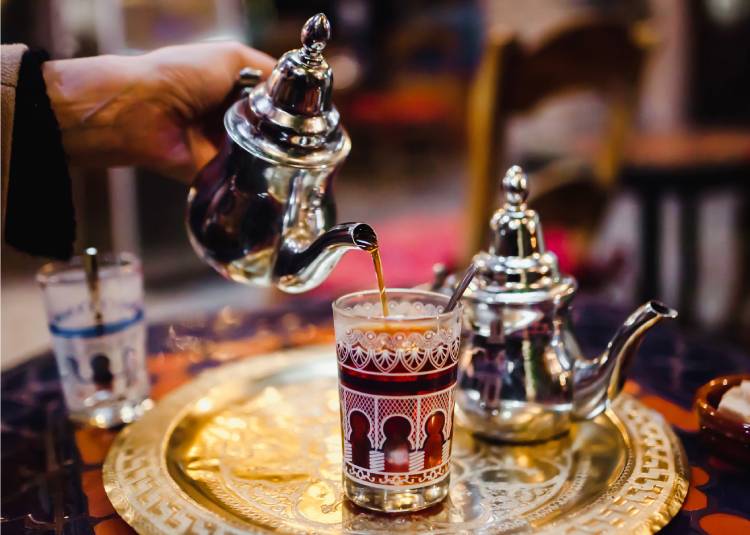The Arabic culture has many customs and traditions that are based on the Islamic faith. One of the most important values is respect for elders. Arabs also have a strong sense of hospitality and family. These customs and traditions make the Arabic culture unique and special.

The importance of family
Arab Muslims place a great deal of importance on family. Family bonds are very strong, and most activities are family-based. Decisions are usually made based on what is best for the family as a whole. Family loyalty and obligations take precedence over individual needs and desires.
Arab culture traditionally emphasizes the extended family and community. Raising a child is more of a communal role, rather than an individual responsibility. The welfare of the family is of paramount importance.
Saudi Arabian families are generally patrilineal and patrilocal, meaning the bride moves into their husband's house at marriage and the family lineage is traced through the father's side. However, Arab culture actually gladly incorporates extensions of their bloodlines. In this case, loyalty to family is of great importance.
All these traditional relationships, traditions and customs are the main elements of the Middle Eastern family's strength. They give the individual members a sense of security and identity that comes from being
The concept of honor
Arabs have a rich culture that is based on honor. This concept dictates many of their social practices and beliefs. For example, Arabs believe that offering praise to someone elevates not only their status, but also their status as the giver of praise. This is just one way that honor is shown in Arab culture.
Another way that Arabs show honor is through their concept of face. Face is the public image or persona that an individual projects to the world. It is closely related to an individual's reputation and honor. A person's face can be both given and taken away. Arabs place a great deal of importance on face and work hard to maintain it.
Wealth is also honored in Arab culture. This is likely due to the fact that wealth represents power and status. An Arab worldview is based upon six concepts: atomism, faith, wishes versus reality, justice and retribution, balance, and time. These concepts all play a role in how Arabs view wealth
Religion and its role in Arab culture
Islam is the largest religion in Arab countries and it has a great impact on Arab culture. Abu'l-Majd believes that Islam is an indivisible system of life and it is based on social and economic contingencies and needs. He also believes that the esoteric Sufi system cannot be separated from Islam.
The great religion in Arab countries is, of course, Islam. However, Islam is also divided into different sub groups. The largest group are the Sunni Muslims who make up around 85% of the Muslim population. Sunni Muslims have a more monolithic view of Islam than the Shia Muslims who make up around 15% of the Muslim population.
Gender roles and expectations
Arab customs and traditions have always placed a great emphasis on the segregation of genders. This has led to a number of strict laws and cultural norms regarding the roles of men and women.
Many people hold a rather bleak view of girls' and women's lives in the Middle East and Muslim world; constrictive stereotypes and judgments about their abilities and rights abound. Coupled with familial duties and expectations, an inhospitable working environment discourages many women from fighting to enter the workforce.
Gender roles in Islam are based on scriptures, cultural traditions, and jurisprudence. The Quran, the holy book of Islam, indicates that both men and women have certain rights and responsibilities. However, over time, these roles have become increasingly skewed in favor of men.
This study is situated within a societal context rife with issues of gender privilege. The role distribution and gender-appropriate expectations in Arab culture have always been unfair to women. All of this information indicates that the situation for women in Saudi
Social interactions and etiquette
Arabs are very hospitable and generous people. They are always ready to help a stranger and make sure that they are well-fed and looked after. It is very important to respect the local customs and traditions when visiting an Arab country. Muslims believe in treating others with respect and dignity, regardless of their background or beliefs. Face-to-face interactions are very important in the Arab world, as they help build relationships and trust.
Greetings and salutations
In Arab countries, it is customary to greet others with a phrase that indicates peace. The most common greeting is "salaam aleikum," which means "May peace be with you." The reply to this greeting is typically "walaikum assalam," which means "May peace be with you, too."
It is also common to shake hands when greeting someone, especially if you are of the same gender. In some cases, men will even walk hand-in-hand as a sign of friendship.
These forms of greeting are still widely used by speakers of Arabic all over the world and reflect the importance of peace in Arab culture.
Gift giving
In Arab culture, gift giving is an important way to show appreciation and respect. Gifts are often given for special occasions such as weddings or births, but they can also be given simply to express admiration or gratitude. The most common gifts in Arab Bedouin society include cloth, livestock, food and silver. Gift giving is a personal and very common practice throughout Saudi Arabia.

Comments
Post a Comment